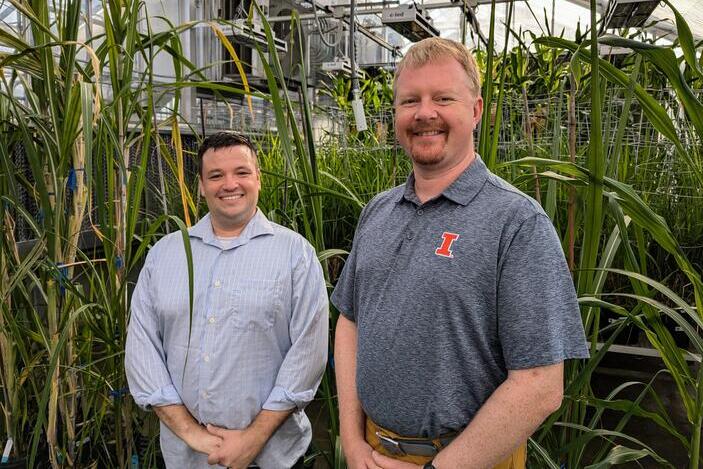CABBI team designs efficient bioenergy crops that need less water to grow

Drought stress has long been a limiting factor for crop production around the world, a challenge exacerbated by climate change.
For more than a century, scientists have targeted a key plant trait known as water use efficiency (WUE) to help crops grow with less water and avoid suffering from drought stress. Greater WUE can help plants avoid drought stress – but for most crops it’s also associated with lower productivity when water is plentiful.
In a pair of studies published today in the Journal of Experimental Botany, crop sciences researchers in the College of ACES and the Center for Advanced Bioenergy and Bioproducts Innovation (CABBI) used genetic engineering to advance improvement of WUE in climate-friendly C4 bioenergy crops without sacrificing yield, a significant advance for development of a sustainable bioeconomy. CABBI is a Department of Energy (DOE)-funded Bioenergy Research Center.